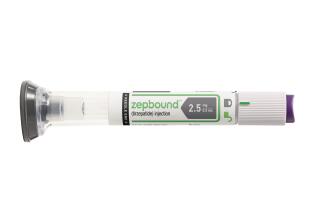Weight-loss drug Lorcaserin: Definite maybe in 2nd run at FDA’s OK
- Share via
The proposed weight-loss drug Lorcaserin, rebuffed in its bid for Food and Drug Administration approval last October, on Thursday won a recommendation of approval from the agency’s advisory committee, a major step toward winning the FDA’s go-ahead to enter the U.S. market. If the agency follows the advice of the panel of independent experts--which is common but not routine-- Lorcaserin would become the first new prescription weight-loss drug to go on the U.S. market since Orlistat (now marketed over-the-counter as Alli) was approved in 1999.
The 18-4 vote on Thursday came after the FDA’s advisory committee on endocrinological and metabolic drugs weighed evidence on the drug’s safety record, presented by Lorcaserin’s sponsor, Arena Pharmaceuticals, which developed Lorcaserin in partnership with Eisai Co. Panel members weighed Lorcaserin’s effectiveness in promoting weight loss in obese patients against concerns that the drug might damage heart valves, as well as about increased rates of breast and brain tumors in animals given higher than the planned dose. Concerns over those issues were enough to prompt the FDA last October to send Arena Pharmaceuticals back to gather more data.
The advisory panel’s FDA staff, which reviews and analyzes new data in advance of the meeting, were generally positive about the data presented by Arena. A report prepared for the advisory panel found that the drug’s feared incidental effects on the heart are “unlikely at the proposed clinical dose of Lorcaserin.” The report acknowledges the higher rate of benign fibroadenoma seen in rats administered the drug, but concludes the rates of cancersseen in rats are “indicative of negligeable risk in human subjects.”
The panel and the FDA are working against the backdrop of a rising sense of urgency over Americans’ weight. With the nation’s obesity rate among adults now standing at 35.7% and projected to grow to 42% by 2030, the search for ways to staunch the obesity epidemic brought 1,200 obesity experts toWashington, D.C., earlier this week for a planning summit.
The FDA’s criteria for the effectiveness of drugs it considers viable reflect the agency’s urgency to provide obese Americans some pharmacological help. A candidate for approval must demonstrate that more than 35% of subjects taking it lose more than 5% of their body weight, and that weight loss is significantly greater for subjects taking the pill than for those on the placebo.
A clinical trial of Lorcaserin published in the New England Journal of Medicine found that two-thirds of patients on the drug lost 5% of their body weight, while a third lost at least 10%. After a year of taking the drug as a supplement to diet and exercise, subjects’ average weight loss was 17 to 18 pounds.
But the FDA’s safety criteria in considering weight-loss drugs have been much stiffer. The agency is acutely aware that any weight-loss product it approves will be broadly marketed and taken by a potentially vast population of patients already beset by obesity-related conditions. Given those circumstances, any hint of a drug-related safety problem could quickly mushroom.
Lorcaserin supports weight-loss by suppressing the appetite. If approved, Lorcaserin is expected to be marketed under the commercial name Lorqess.







